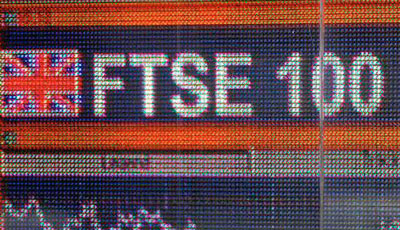FTSE 100 companies to cough up £24bn in legal liabilities

Companies forced to delay dividends and sell off assets to pay legal costs
FTSE 100 companies have warned their shareholders they face total legal liabilities of £24bn, according to Thomson Reuters.
Raichel Hopkinson, head of the practical law dispute resolution service at Thomson Reuters, explained: ‘The cost of litigation was once seen as just a cost of doing business. Now it is all too clear that regulatory action and litigation can be a risk to very existence of the world’s largest businesses.’
She continued: ‘Ten years ago such a statement would be seen as overly alarmist. But the last few years a succession of FTSE 100 and Fortune 500 companies have had to raise new capital, suspend dividend payments or dismember their empires in order to pay fines or restitution orders.’
The huge cost of settling legal and regulatory disputes in the financial services sector makes up over half of the total, even though it is almost eight years since the credit crunch began.
FTSE 100 banks saw their total legal liabilities increase by 18 per cent in the last year to £12.6bn, up from £10.7bn the year before.
Excluding the impact of BP’s record legal provisions associated with the Deepwater Horizon oil spill, the total amount of legal and regulatory provisions made by FTSE 100 increased by 15.7 per cent in the last year, from £18.3bn to £21.2bn.
Such is the scale of legal and regulatory costs that it is now seen as a major drain on earnings in the banking sector. HSBC recently attributed a sharp deterioration in its cost-to-income ratio, in part, to its increased compliance costs.
Legacy litigation
Legacy issues are currently the subject of litigation and regulatory scrutiny. These include such cases as Bernard L Madoff, manipulation of precious metal prices, anti-competitive behaviour related to credit default swaps, LIBOR manipulation, fines for failings related to anti-money laundering, and ‘dark pools’.
The recent fines for Forex manipulation may be followed by the costs of civil claims from corporates or pension funds that feel they have suffered a loss when prices were moved against them.
Moreover, one of Britain’s most influential fund managers Neil Woodford recently announced he was selling his stake in HSBC due to the perceived drag on earnings from litigation and regulatory costs.
PPI mis-selling
While the impact of PPI mis-selling is now expected to fade as the peak number of PPI claims recedes, UK listed banks have now started to be hit by new fines from overseas regulators and enforcement agencies running into the hundreds of millions of pounds.
In addition, concerns have also been raised over the possible of mis-selling having taken place over packaged bank accounts. These include services such as insurance that the account holder may not have been entitled to claim against.
Changes made in the 2015 Budget will prevent banks from offsetting the cost of compensating customers against corporation tax – further increasing the bottom line impact of legal and regulatory disputes to shareholders.
Oil and gas industry
The increase in the rising impact of litigation costs over the last few years is by no means restricted to the banks. There are now 12 members of the FTSE 100 – outside of the financial services sector – that have reported legal and regulatory liabilities of £250m or more.
The oil and gas industry represented the second largest sector for legal and regulatory provisions made, accounting for £3.8bn of the total. BP made up the majority of that figure.
However, the sector also saw the biggest reduction in the size of legal contingencies, with BP’s legal provisions falling by 52 per cent from £6.74bn to £3.23bn after it paid out billions in compensation. This remains the largest single litigation provision of any non-bank FTSE 100 company this year.
Reputational impact
‘In-house legal teams used to warn that litigation and regulatory actions were not just a cash cost – that they could also have a huge reputational impact,’ said Hopkins. ‘Now we have entered the era of the billion dollar fine, the potential cash cost of legal risks should be taken much more seriously at board level.’
‘There is also a concern amongst the business community that regulators and law enforcement agencies are now responding to political and popular pressures to impose bigger fines and bring prosecutions that they might previously have not prioritised or left to other agencies.’
Hopkins added that, as a result of this, businesses are looking at how they can sharpen in their in-house compliance and legal functions both to stop costly litigation from occurring and to help manage the cost of any eventual fine or settlement down.
Source: SolicitorsJournal – FTSE 100 companies to cough up £24bn in legal liabilities





























